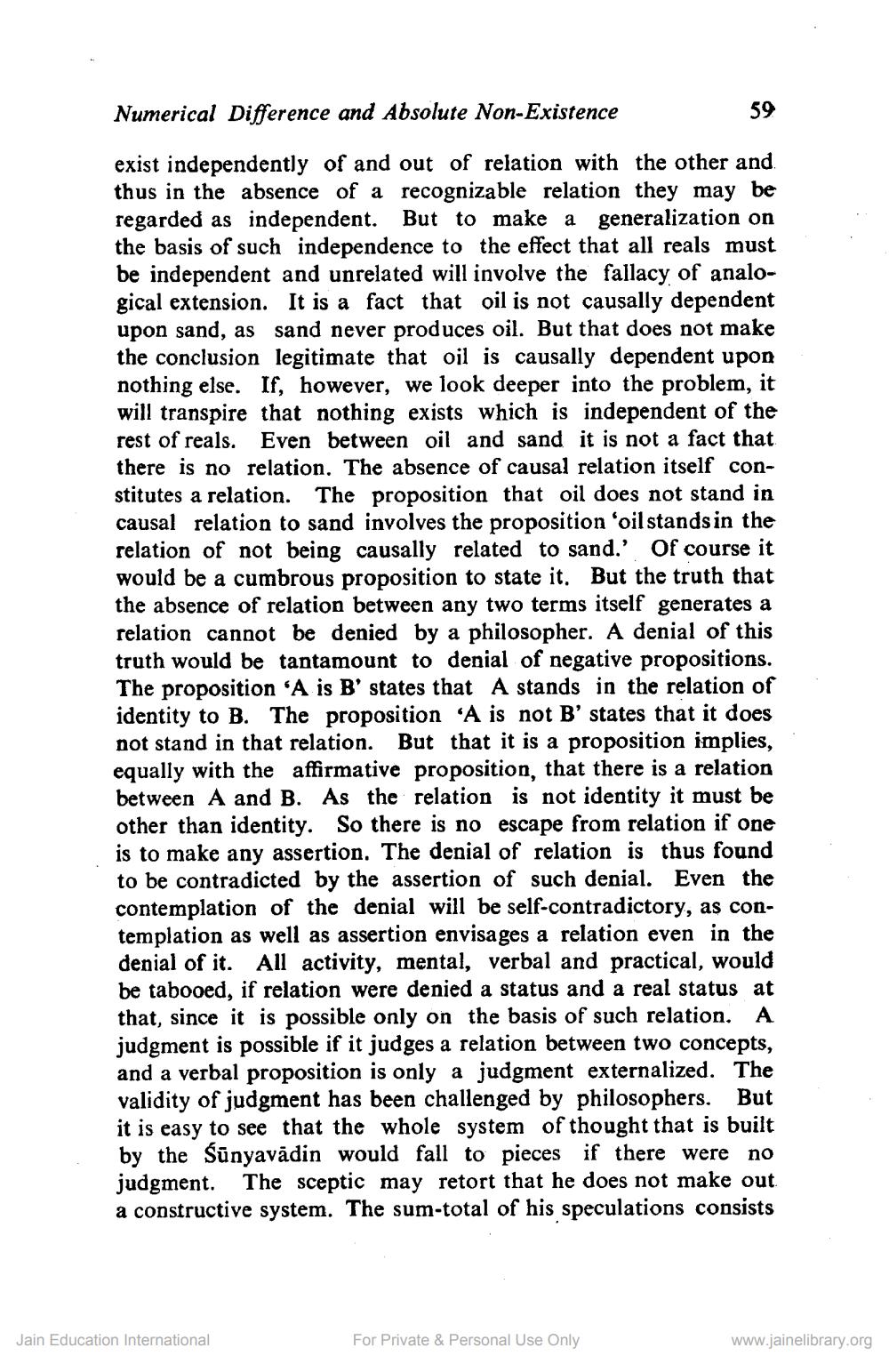________________
Numerical Difference and Absolute Non-Existence
59
exist independently of and out of relation with the other and thus in the absence of a recognizable relation they may be regarded as independent. But to make a generalization on the basis of such independence to the effect that all reals must be independent and unrelated will involve the fallacy of analogical extension. It is a fact that oil is not causally dependent upon sand, as sand never produces oil. But that does not make the conclusion legitimate that oil is causally dependent upon nothing else. If, however, we look deeper into the problem, it will transpire that nothing exists which is independent of the rest of reals. Even between oil and sand it is not a fact that there is no relation. The absence of causal relation itself constitutes a relation. The proposition that oil does not stand in causal relation to sand involves the proposition 'oil stands in the relation of not being causally related to sand.'. Of course it would be a cumbrous proposition to state it. But the truth that the absence of relation between any two terms itself generates a relation cannot be denied by a philosopher. A denial of this truth would be tantamount to denial of negative propositions. The proposition 'A is B' states that A stands in the relation of identity to B. The proposition A is not B’ states that it does not stand in that relation. But that it is a proposition implies, equally with the affirmative proposition, that there is a relation between A and B. As the relation is not identity it must be other than identity. So there is no escape from relation if one is to make any assertion. The denial of relation is thus found to be contradicted by the assertion of such denial. Even the contemplation of the denial will be self-contradictory, as contemplation as well as assertion envisa ges a relation even in the denial of it. All activity, mental, verbal and practical, would be tabooed, if relation were denied a status and a real status at that, since it is possible only on the basis of such relation. A judgment is possible if it judges a relation between two concepts, and a verbal proposition is only a judgment externalized. The validity of judgment has been challenged by philosophers. But it is easy to see that the whole system of thought that is built by the Sūnyavādin would fall to pieces if there were no judgment. The sceptic may retort that he does not make out a constructive system. The sum-total of his speculations consists
Jain Education International
For Private & Personal Use Only
www.jainelibrary.org




